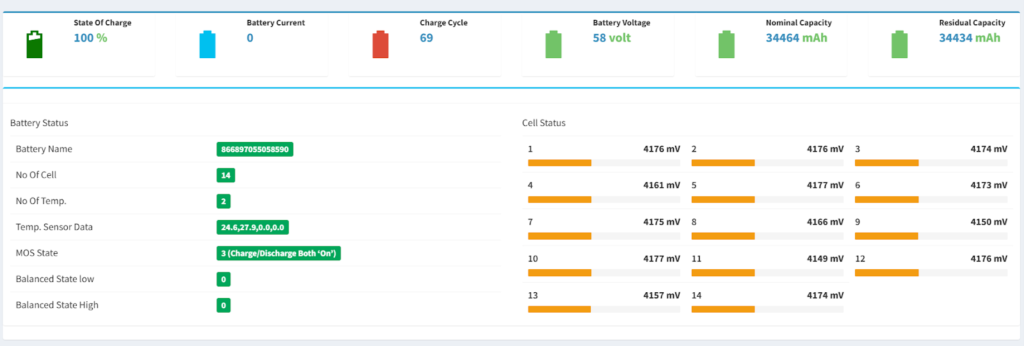The Power Behind Electric Vehicles: Exploring the Role of Battery Management Systems
Electric vehicles are revolutionizing the automotive industry, offering a greener and more sustainable mode of transportation. But what powers these innovative vehicles and enables them to go the extra mile? The answer lies in the battery management system (BMS), a critical component that plays a crucial role in the performance and efficiency of electric vehicles. In this article, we delve into the power behind electric vehicles and explore the importance of BMS.
The BMS acts as the brain of the electric vehicle’s battery, monitoring and controlling various parameters to ensure optimal performance and safety. It keeps a close eye on factors like temperature, voltage, and state of charge, making real-time adjustments to maximize battery life and efficiency. By ensuring that each cell within the battery operates within safe limits, the BMS helps extend the battery’s lifespan, thus improving the overall longevity and reliability of the electric vehicle.
Moreover, the BMS plays a vital role in protecting the battery from adverse conditions, such as overcharging, deep discharging, and excessive temperature fluctuations. It also provides crucial information to the driver, such as the remaining range and charging status, empowering them to make informed decisions.
As the demand for electric vehicles continues to soar, understanding the role of the BMS becomes increasingly important. So, join us as we unravel the power behind electric vehicles and the intricate workings of the battery management system.
Importance of BMS in Electric Vehicles (EVs) with Pictor Telematics Solutions

Battery Management Systems (BMS) are essential for the optimal functioning of electric vehicles (EVs). As the cornerstone of the battery system, the BMS ensures the battery operates within safe parameters, thereby optimizing performance and extending its lifespan. EVs heavily depend on advanced battery technology, and without an effective BMS, their efficiency could significantly diminish.
One of the primary functions of the BMS is to monitor the battery’s health. This includes continual checks on the voltage, temperature, and state of charge of each cell within the battery pack. Utilizing Pictor Telematics’ innovative BMS IoT devices like the CONNECT01 and CONNECT02+, this real-time monitoring allows for the immediate detection of any anomalies that could lead to battery failure or inefficiency. These devices ensure the battery’s longevity, allowing EV owners to enjoy their vehicles without the concern of premature battery degradation.
Additionally, our BMS plays a critical role in enhancing the safety of electric vehicles. Lithium-ion batteries, commonly used in EVs, pose significant risks if not managed correctly. Risks such as overcharging or overheating can lead to thermal runaway, a dangerous condition where batteries may catch fire or explode. Our BMS devices, equipped with sophisticated safety protocols, mitigate these risks by ensuring that the battery operates within its safe operational boundaries.
Featured Pictor Telematics BMS IoT Devices:
CONNECT01 BMS IoT Device: Integrates battery management with GPS tracking, enhancing safety and efficiency with real-time monitoring capabilities.
2G CONNECT01+ BMS IoT Device: Offers advanced battery management combined with GPS tracking, providing crucial real-time updates on vehicle location and battery health.
4G CONNECT02+ BMS IoT Device: Combines smart battery management with GPS tracking to ensure maximum safety, reliability, and efficiency of your EV’s battery.
As EV technology progresses, the need for sophisticated BMS solutions like those offered by Pictor Telematics becomes increasingly critical, shaping the future of electric mobility and ensuring a safer, more efficient driving experience.


Functionality of Battery Management Systems
The functionality of a Battery Management System encompasses several key processes that contribute to the effective operation of electric vehicle batteries. At its core, the BMS is designed to monitor the battery cells’ conditions and manage their charge and discharge cycles. By tracking the state of charge (SOC), state of health (SOH), and state of function (SOF), the BMS can provide accurate information regarding the battery’s performance and reliability. This data is essential for optimizing energy usage and ensuring that the vehicle operates efficiently.
Another significant function of the BMS is balancing the battery cells. In a battery pack composed of multiple cells, it’s common for cells to exhibit variations in voltage and capacity. If left unchecked, these discrepancies can lead to reduced performance and shortened battery life. The BMS employs balancing techniques, such as passive and active balancing, to equalize the charge among cells. This balancing act is crucial for maintaining the health of the battery over time and maximizing the energy output of the entire pack.
Moreover, the BMS communicates with other vehicle systems, providing essential information related to battery performance and operational status. This includes alerts for the driver about the remaining range, charging status, and any potential issues that may arise during operation. By integrating with the vehicle’s overall control systems, the BMS enables a seamless experience for the driver, allowing for informed decision-making and enhancing the overall efficiency of the electric vehicle.
Components of a Battery Management System
A Battery Management System comprises several key components that work together to ensure the safe and efficient operation of electric vehicle batteries. The primary elements include battery monitoring units, a control unit, a communication interface, and balancing circuits. Each of these components plays a vital role in maintaining the health of the battery and optimizing its performance.
The battery monitoring unit is responsible for gathering data from individual battery cells. It measures essential parameters like voltage, temperature, and current. This data is crucial for assessing the overall state of the battery and determining whether it is operating within safe limits. The monitoring unit often uses sensors to provide accurate readings, which are then transmitted to the control unit for analysis and decision-making.
The control unit serves as the brain of the BMS, processing the data received from the monitoring units and making real-time adjustments as needed. It uses algorithms to analyze the collected information and determine the appropriate actions, such as adjusting the charge and discharge rates or activating balancing circuits. Additionally, the control unit communicates with the vehicle’s other systems, integrating battery management with overall vehicle performance. This interconnectedness is essential for ensuring that the EV operates smoothly and efficiently.
Advantages of Battery Management Systems

Battery Management Systems offer numerous advantages that significantly enhance the performance and safety of electric vehicles. One of the primary benefits is improved battery lifespan. By constantly monitoring the health of each cell and implementing balancing techniques, the BMS allows batteries to operate at optimal levels. This optimized performance not only prolongs the life of the battery but also ensures that the vehicle maintains consistent performance over time, reducing the likelihood of unexpected failures.
Another advantage of BMS technology is enhanced safety. Electric vehicle batteries, particularly lithium-ion batteries, can pose risks if not managed properly. The BMS mitigates these risks by implementing protective measures against overcharging, deep discharging, and extreme temperature fluctuations. These safety features are essential for preventing dangerous situations, such as thermal runaway or battery fires, thereby protecting both the vehicle and its occupants. The peace of mind provided by a reliable BMS is a significant factor in consumer confidence in electric vehicles.
Furthermore, Battery Management Systems contribute to improved energy efficiency. By optimizing charging and discharging cycles, the BMS ensures that the battery operates at peak efficiency, delivering the maximum amount of usable energy to the vehicle. This efficiency translates to a longer driving range and reduced charging times, making electric vehicles more convenient and practical for everyday use. As the demand for electric vehicles continues to rise, the advantages provided by advanced BMS technology will play a crucial role in shaping the future of the automotive industry.
Challenges and Limitations of Battery Management Systems

Despite their many advantages, Battery Management Systems also face several challenges and limitations that can impact their performance and effectiveness in electric vehicles. One of the primary challenges is the complexity of battery chemistry and technology. As battery technologies evolve, such as the advent of solid-state batteries or new chemistries, BMS solutions must adapt to manage these advancements effectively. This rapid pace of innovation can create hurdles for manufacturers striving to develop compatible and efficient management systems.
Another limitation is the cost associated with advanced BMS technology. High-quality BMS solutions often involve sophisticated hardware and software, which can increase the overall cost of electric vehicles. While the long-term benefits of improved battery life and safety may justify this investment, the initial financial burden can deter some consumers from embracing electric mobility. Consequently, finding a balance between affordability and advanced BMS capabilities remains a challenge for manufacturers and consumers alike.
Additionally, the integration of BMS with other vehicle systems can present difficulties. As vehicles become increasingly connected and reliant on technology, ensuring seamless communication between the BMS and other components, like the drivetrain and infotainment systems, becomes critical. Any disruptions in this communication can lead to performance issues or safety concerns. Manufacturers must focus on developing robust solutions that facilitate effective integration while maintaining the reliability and safety of the battery management system.
Future Trends in Battery Management Systems

The future of Battery Management Systems in electric vehicles is poised for significant advancements as technology continues to evolve. One prominent trend is the integration of artificial intelligence (AI) and machine learning (ML) into BMS solutions. These technologies can analyze vast amounts of data collected from battery cells, enabling predictive analytics that can foresee potential issues before they arise. By leveraging AI, BMS can optimize charging strategies and enhance battery performance, further extending battery life and improving safety.
Another trend is the development of more advanced balancing techniques. As battery packs grow in size and complexity, the need for efficient balancing solutions becomes more pressing. Future BMS designs may incorporate active balancing methods that allow energy to be redistributed among cells more effectively, minimizing energy losses and enhancing overall battery performance. This evolution will be crucial for meeting the demands of high-performance electric vehicles and expanding the capabilities of current battery technologies.
Furthermore, as the industry moves towards more standardized battery architectures, BMS solutions will need to adapt to accommodate various battery types and configurations. The push for modular and scalable battery designs will drive the development of flexible BMS architectures that can support a range of applications, from passenger vehicles to commercial transport. This adaptability will be vital for manufacturers looking to streamline production and reduce costs while maintaining high standards of safety and efficiency.
Battery Management Systems vs. Traditional Battery Systems
When comparing Battery Management Systems to traditional battery systems, it becomes evident that BMS technology offers significant advantages in terms of performance, safety, and longevity. Traditional battery systems often lack the sophisticated monitoring and control capabilities that a BMS provides. Without real-time data on battery health, users may not be aware of issues such as overcharging or cell imbalance, leading to reduced battery life and safety risks.
In contrast, BMS-equipped systems continuously monitor critical parameters, enabling proactive management of battery health. This real-time oversight ensures that each cell operates within its safe limits, thereby maximizing performance and extending the battery’s lifespan. The ability to balance cells and optimize charging cycles further differentiates BMS technology from traditional systems, allowing for a more efficient energy use and better overall performance.
Moreover, the safety features inherent in BMS technology significantly outshine those of traditional battery systems. The risk of thermal runaway and other dangerous conditions is considerably reduced with a properly functioning BMS, as it implements necessary safety protocols to prevent such occurrences. As electric vehicles grow in popularity and complexity, the enhanced safety and performance offered by Battery Management Systems will become increasingly essential in the automotive landscape.
Applications of Battery Management Systems beyond Electric Vehicles
While Battery Management Systems are primarily associated with electric vehicles, their applications extend far beyond the automotive industry. One significant area is renewable energy storage systems, which have become increasingly vital for integrating solar and wind energy into the grid. BMS technology plays a crucial role in managing the energy stored in large battery banks, ensuring that the energy is efficiently used and that the batteries operate safely over their lifespan.
Another notable application of BMS technology is in consumer electronics. Devices such as smartphones, laptops, and tablets rely on lithium-ion batteries, which require effective management to optimize performance and safety. BMS solutions help monitor the battery’s state of charge and health, ensuring that these devices provide reliable power and longevity to users. As the demand for portable electronics continues to grow, the importance of effective battery management will only increase.
In addition, Battery Management Systems are finding their way into various industrial applications, such as electric forklifts, drones, and energy storage for telecommunications. These sectors benefit from the efficiency and safety enhancements provided by BMS technology, enabling longer operational periods and reduced downtime. The versatility of BMS solutions highlights their significance in a wide range of applications, paving the way for further innovations in battery management across multiple industries.
Conclusion
In conclusion, the role of Battery Management Systems in electric vehicles is integral to their performance, safety, and longevity. As the automotive industry continues to evolve towards sustainable transportation solutions, the importance of effective battery management will only increase. BMS technology ensures that electric vehicle batteries operate within safe limits, prolonging their lifespan and enhancing overall efficiency.
With advancements in AI, machine learning, and new balancing techniques, the future of BMS looks promising. These innovations will not only improve the performance of electric vehicles but also expand the applicability of BMS technology to various other sectors, including renewable energy, consumer electronics, and industrial applications.
As we move towards a more electrified future, understanding and investing in Battery Management Systems will be key to unlocking the full potential of electric vehicles and paving the way for a more sustainable and efficient transportation landscape. The journey has just begun, and the power behind electric vehicles lies firmly in the hands of advanced BMS technology.
Pictor Telematics: Leading the Way in GPS Tracking and Telematics Solutions

Leave a Reply